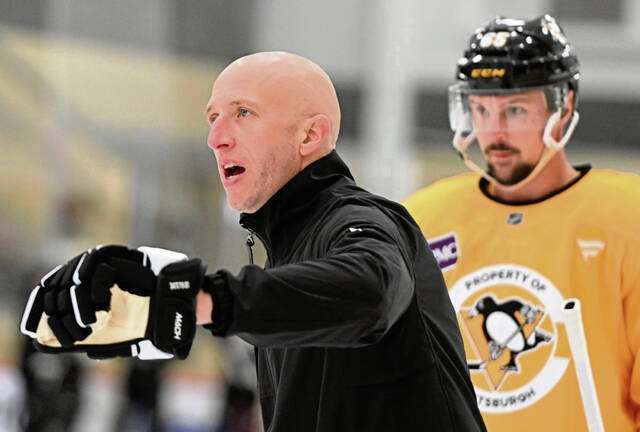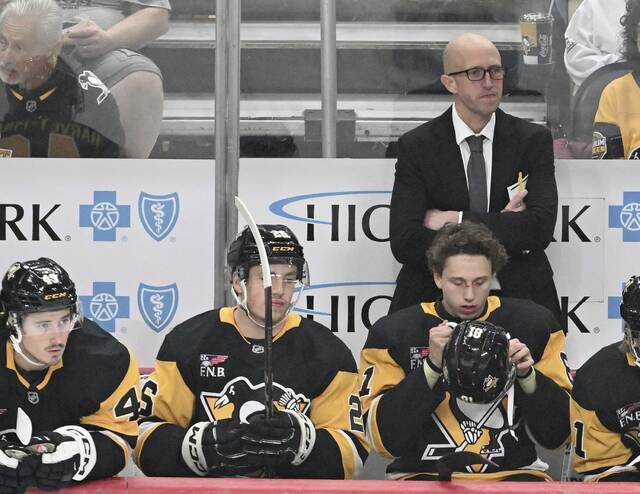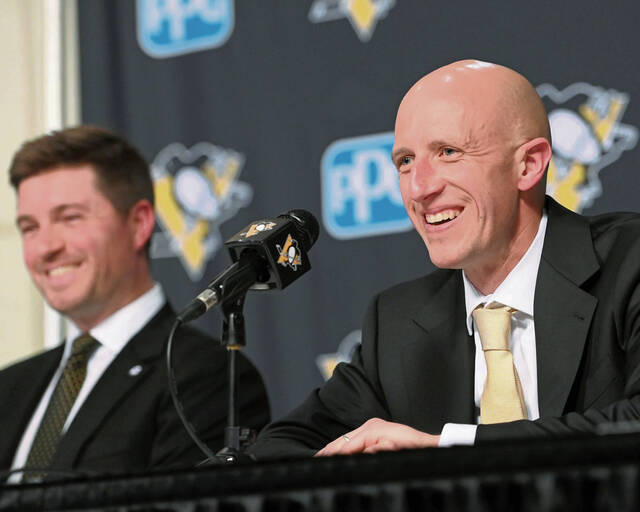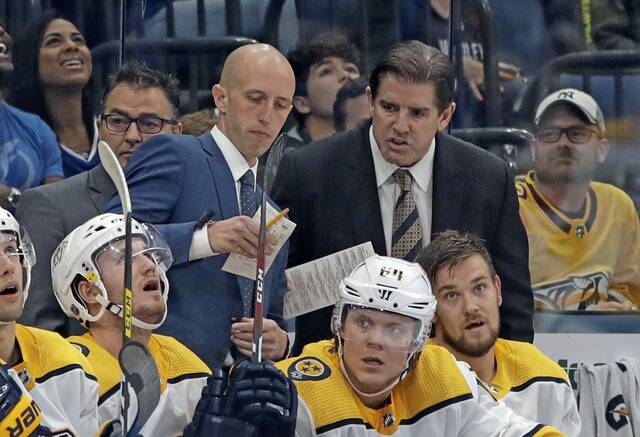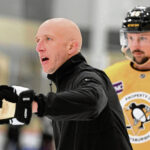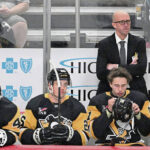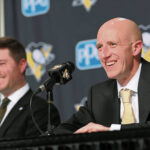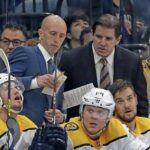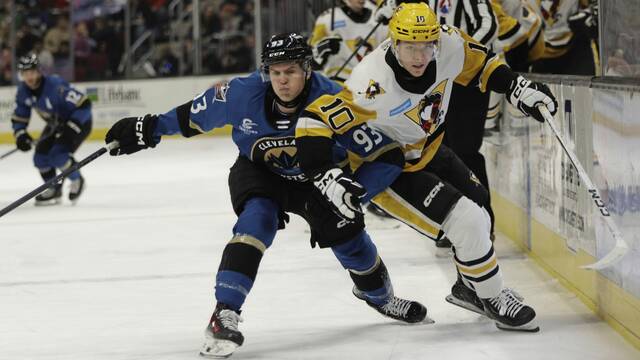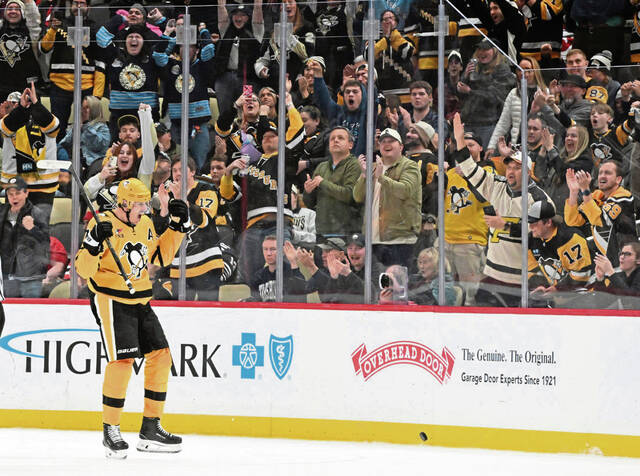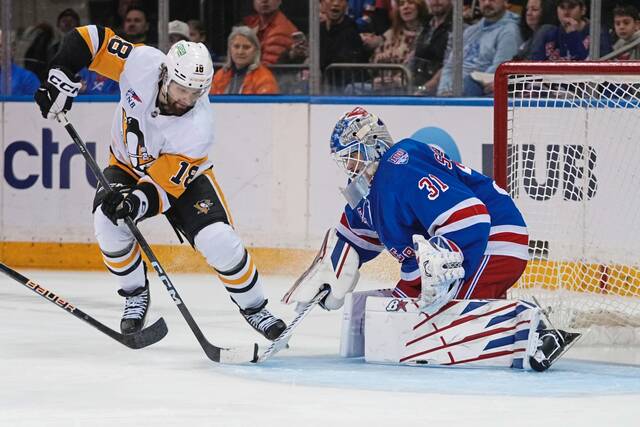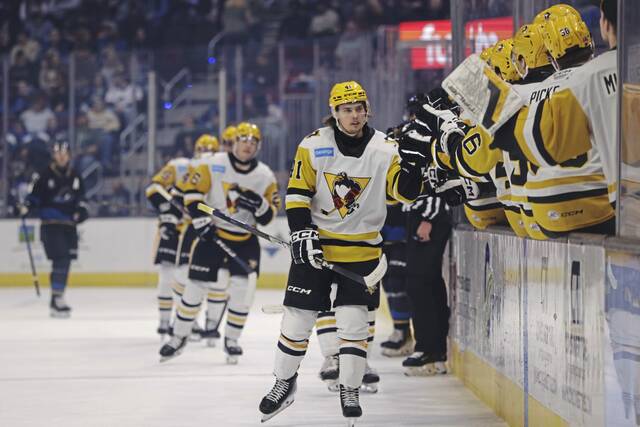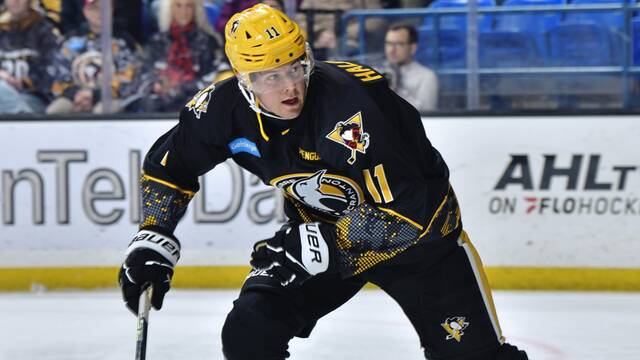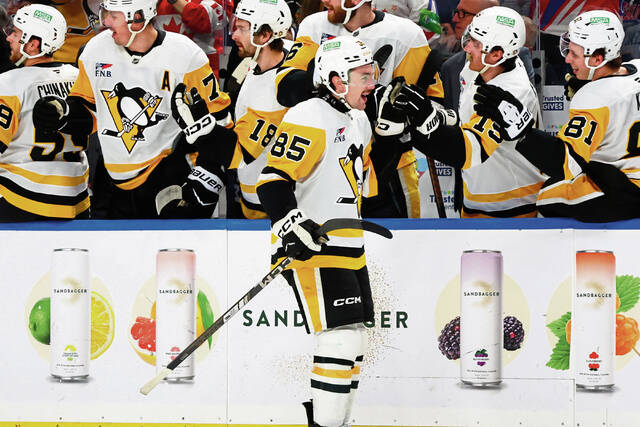Like anyone who spent time in the Yellowhammer State, Dan Muse is a big fan of Alabama football.
But unlike many Crimson Tide fans, he has patience for Kalen DeBoer, the scrutinized coach of the program who has the daunting task of succeeding Nick Saban, arguably the greatest college football coach ever.
DeBoer has been good but not perfect in replacing Saban. And that has prompted demanding Alabama fans to call for his firing.
But not Muse.
“I don’t know who could go in there after Saban and come in,” said Muse, who spent some of his youth in Hoover, Ala. “It’s tough to get anybody down there to say anybody could come close to Bear Bryant. And yet, you’ve got people that do feel that way (about Saban).
“I think it’s going to take some time. There might be a little bit of that downswing for a while. But, hopefully, he gets that chance to get it back up. The pressure down there, I can’t even imagine.”
It’s not hard to imagine a parallel between DeBoer’s challenge and what Muse is beginning to embark on as coach of the Pittsburgh Penguins.
While not lionized quite like Saban, Mike Sullivan was highly successful as the Penguins’ coach for parts of the previous 10 seasons.
The last three of those seasons did not result in playoff appearances — leading to Sullivan and the team parting ways April 29 — but he did guide the Penguins to Stanley Cup championships in 2015 and 2016, the first back-to-back titles of the NHL’s salary cap era. And he is the franchise’s leader in coaching wins with a career mark of 409-255-89.
By just about any measure, Sullivan is the greatest coach the Penguins have ever had.
The cliched and boring question of wondering what it’s like to replace an icon is always going to be there for Muse.
But a more relevant query is what it is like changing things that largely have been in place with the Penguins for nearly a decade, especially with several veteran players who were very comfortable with Sullivan.
“There’s a lot of ways to build a successful culture,” said Muse, who was hired June 4. “They’re not necessarily the same. If you look at programs and teams around the country, whatever sport you want to choose, there’s different ways of going about it. Then you go into the systems part — which I think comes secondary to the environment that you’re building — there’s a lot of different ways of doing that.”
A lot of the ways Muse does things was learned from Peter Laviolette, one of the winningest coaches in NHL history.
Laviolette gave Muse his first NHL job as an assistant coach with the Nashville Predators in 2017.
“He came in, and he put on an unbelievable interview,” Laviolette recalled by phone. “I said, ‘Do you have any penalty kill (video) clips you can show me?’ And he said, ‘Yeah, I can show you your team.’ He already had my whole team broken down and all the penalty kill clips completely prepared and just knocked it out of the park. When I wanted a coach, I wanted somebody that wasn’t familiar to me. Somebody that could challenge the coaching staff and make our group better, and he was all of that.
“Our penalty kill in the first few years was maybe top three in the league. He just came in and kind of knocked my socks off right away.”
Muse had just won the Clark Cup as head coach of the Chicago Steel in the United States Hockey League after the 2016-17 campaign. Through a connection with USA Hockey executive Jim Johannson, Muse was recommended to Laviolette.
Another reference came from Yale coach Keith Allain, who won the 2013 NCAA championship with Muse on staff.
“There was some mutual connections that way that kind of opened the door,” Muse said. “Then from there, luckily, I fit the mold of what (Laviolette) was looking for. … And he was great for me. (Laviolette) was incredible. I learned so much from him. The progression from being a head coach in junior hockey to working with (Laviolette) for those three years in Nashville, then being able to take the things I saw from him and being able to apply it going back to being a head coach for three seasons … you can never plan things like that out, but for my personal growth, that was a really positive experience having that.”
After Muse left the Predators in 2020, he became coach of the United States National Team Development Program. As the name indicates, development was a vital part of his duties.
That background is part of why he was hired by Penguins president of hockey operations Kyle Dubas as he tries to restock a franchise that largely ignored developing younger, home-grown talent.
Though Sullivan had little say on which players the Penguins drafted (or how often they tended to trade away high draft picks or prospects), he wasn’t exactly celebrated for overseeing the development of younger players in recent years. Or showing much patience when they made mistakes.
Muse seems much more willing to let young players learn through mishaps.
“First of all, hockey is the greatest game of mistakes that there is,” Muse said. “Maybe I’m wrong, but I don’t know if there is a sport where there (are) more mistakes. It’s so fast, it’s so physical, it’s, at times, so chaotic. What these guys do in this league, it’s incredible because it is so hard. You’re doing things at such a fast pace. With that, mistakes are happening all the time.
“Now, not all mistakes are equal. There’s a difference between just a mistake because you’re trying to do the right thing and it’s a little bit of execution or it might be a little bit off and a mistake that’s based on effort, that’s based on working to do the right thing, that’s based on not playing necessarily a team brand of hockey. Those two things are very different.
“For players, you’re definitely going to learn through (mistakes). You can learn through them. You can learn when things don’t maybe connect as well if you have the right mindset through that.”
Muse’s patience with the learning process has roots in the earliest days of his career, which weren’t always on a rink.
After his playing days as a forward with Stonehill College (of the NCAA Division III ranks) came to an end in 2004-05, Muse taught history at Archbishop Williams High School in Braintree, Mass.
“The fact that he was a school teacher, the fact that he had to work his game — he wasn’t a Division I star — he had to think about the game and how to be successful,” Laviolette said. “His work ethic and his determination in all of those areas, whether being a teacher, trying to be a hockey player or trying to figure out how he’s going to be (an assistant coach) at Yale, he did it through smarts, he did it through work ethic and he did it the right way.
“I think that’s what’s really impressive about Dan and his story. If you really track how he got into coaching and the successes that he’s had and that his teams have had, it’s really impressive.”
Watching Muse direct the Penguins through training camp was impressive. The team’s practice sessions were lengthy, energetic affairs with a lot of yelling from Muse but with purpose and enthusiasm.
And the hours he has put in the office often have exceeded the hours the sun is in the sky.
“He gets there early,” Laviolette said. “He stays late. He works through everything. As an assistant coach, he was extremely supportive. He was there to provide help for anybody, really, whether it be players, coaches or staff. Just very prepared, very organized, never caught off guard.”
That approach led to Laviolette re-hiring Muse as an assistant when he took over the New York Rangers in 2023. After overseeing the Rangers’ penalty kill for two seasons, Muse joined the Penguins four months ago.
“Making the steps to head coach isn’t always the easiest thing,” Laviolette said. “The whole time that I’ve known him and watched him, the path was to be where he is today. There was no question in my mind. I’ve told Dan that many times, there was no question that he was going to get there. To see him as a head coach in the National Hockey League for the Pittsburgh Penguins does not surprise me.”
A winning season for the Penguins would be surprising to those on the outside. The club is in the midst of a rebuild, and winning immediately isn’t necessarily part of the overall design mapped out by Dubas.
The Penguins open the regular season Tuesday with a road game against the Rangers — who hired Sullivan as coach — and will end it April 14 by visiting the St. Louis Blues.
How will Muse determine what success looks like by April 15?
He paused for a moment to ponder the question.
“I want the season to go as long as it possibly can,” Muse said. “You start the year, everybody has goals in mind. Everybody wants to go as far as possible. I want to look at this season and say there is an environment where every day we’re competing and every day we’re growing and we were consistent with that. You go and control what you can control, focus on what you can control. I go into this season saying can we create that environment where everybody is walking out of here feeling they’re getting a little bit better over the course of the year.
“That’s the type of environment I want to create where that daily growth and daily competitiveness is constant. Because if those things are happening, we should be working towards our full potential.”


